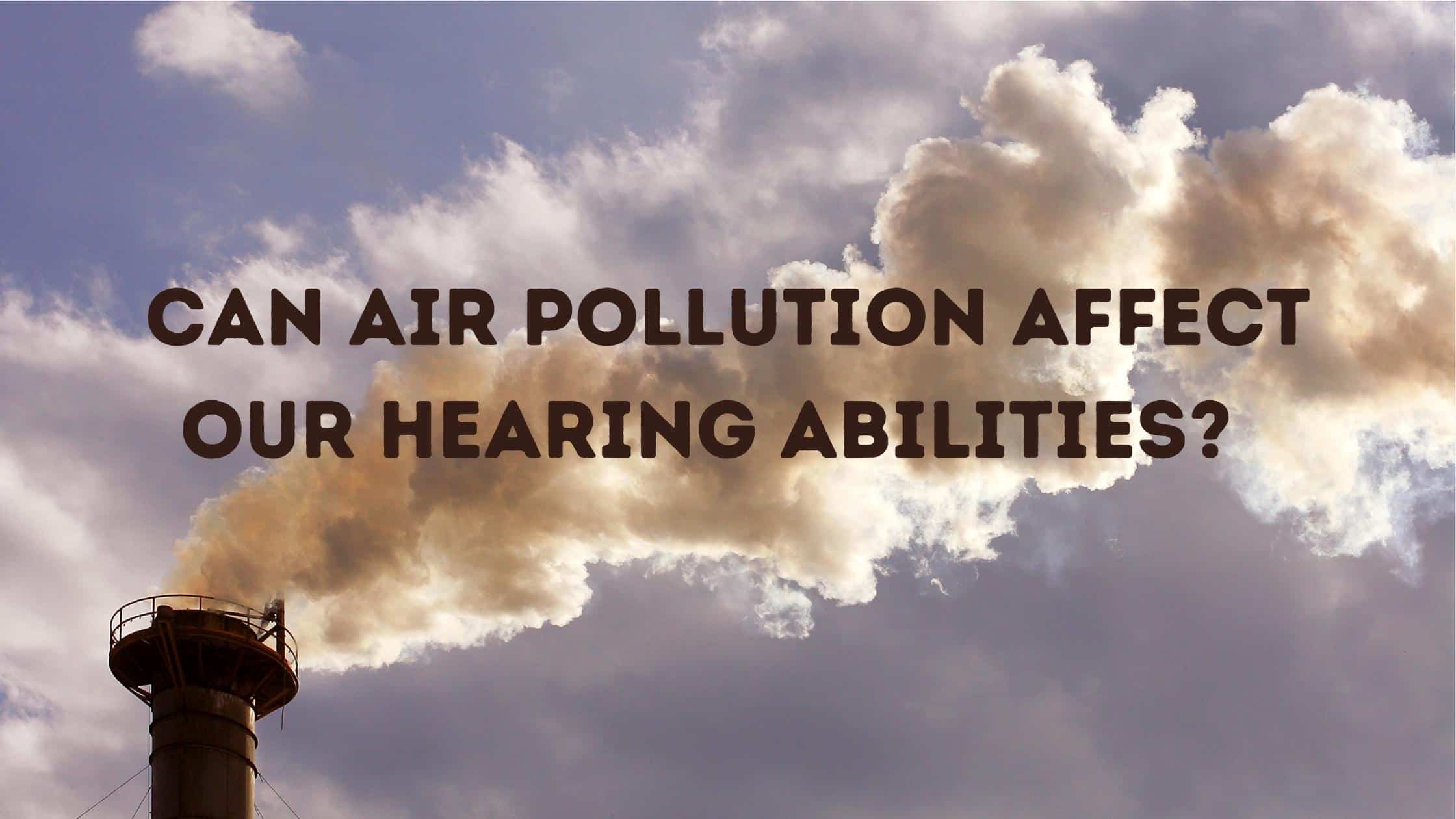As you might be aware, the most common cause of hearing loss is aging. The daily wear and tear on our hearing systems limit our capacity to hear as we get older. When our hearing deteriorates, soft voices and high-frequency tones, such as women’s and children’s voices, become difficult to hear. For those with age-related hearing loss, conversations in loud environments become extremely difficult to understand.
Another common cause of hearing loss is long-term exposure to loud noise. When the inner ear’s hair cells are exposed to loud noise for an extended period, they become weakened and die. You lose the ability to hear when these hair cells begin to deteriorate.
In addition to these well-known causes of hearing loss, a recent Taiwanese study discovered a lesser-known cause of hearing loss: air pollution. Hearing loss seems to be more common among those that are exposed to poor air quality. Let’s look at this study and discuss how public health efforts could incorporate air pollution into our hearing loss prevention strategies.
A link between hearing loss and air pollution
In March of last year, a major study looking into the connection between air pollution and hearing loss was released. Researchers from the Taiwan National Health Research Institutes conducted this report published in the International Journal of Environmental Research and Public Health.
Researchers measured concentrations of air pollutants (carbon monoxide and nitrogen dioxide) in the air using data from 74 air quality monitoring stations across Taiwan. They were able to chart the areas of Taiwan with low, moderate, and high pollution levels due to this. They also looked at data from a national health survey that included 75,767 people aged 20 and up to see whether there were any connections between air pollution and hearing loss. The study’s data covers an extended timeframe (1998–2010), and participants had no prior history of hearing loss at the start.
Researchers discovered a relationship between hearing loss and air pollution after mapping and analyzing the data:
- People exposed to higher levels of nitrogen dioxide had 1.63 times more hearing loss than those exposed to lower levels.
- People who are exposed to higher levels of carbon monoxide are 1.45 times more likely to develop cancer.
These results attest that people exposed to more air pollution have a higher risk of experiencing hearing loss.
The effect of air pollution on hearing health
Although more research into the effects of air pollution on hearing is needed, it is thought that chemicals in the air can damage the cells in your inner ear. These delicate cells are highly susceptible to damage and are deprived of the oxygen they need to work correctly.
Air pollution has been attributed to a rise in ear infections, which can cause permanent hearing loss. There is a correlation between nitrogen dioxide (a compound generated by cars, trucks, and aerosol fumes, mainly) and ear infections in children, according to a 2018 study.
Air pollution reduction is a critical step toward improving people’s overall health and well-being around the world. Hearing loss may also be reduced by policies that protect the environment or minimize pollution. This will reduce the number of ear infections and the number of cases of sensorineural hearing loss caused by air contaminants.
How to protect yourself
By incorporating safety measures into your everyday life, you can help to reduce the effect of air pollution and noise on your health. The following are a few helpful hints:
- Reduce exposure to air pollution: Monitor the forecast and avoid going outside when pollution levels are expected to be high, avoid spending time in high-traffic areas that increase pollution, quit smoking or avoid being around smokers, invest in an air purifier, wear face masks to reduce the amount of pollution you breathe in, and so on.
- Reduce exposure to noise: Another good way to protect your hearing is to wear ear protection. Earmuffs, earplugs, headphones, and other noise-canceling devices are examples of this since they have a protective shield that reduces the amount of noise pollution you are exposed to. Another common cause of hearing loss is loud noise exposure, so wearing hearing protection is beneficial.
Make an appointment for a hearing test!
As you can see, hearing loss can be caused by air pollution, but it is most often caused by more mundane factors such as ambient noise and the aging process. Contact us to schedule an appointment for a hearing test if you’ve noticed any changes in your hearing.

